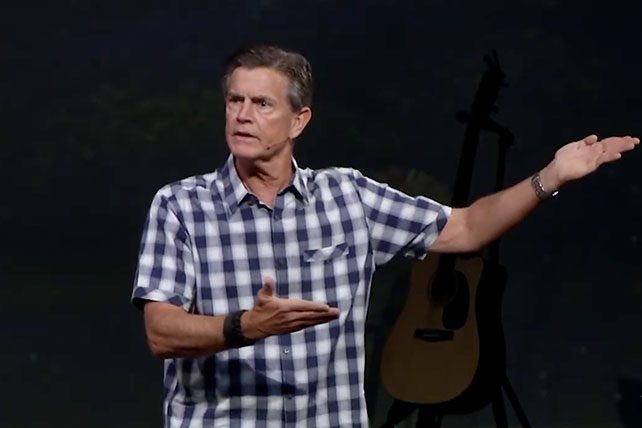Pastor and author Tim Keller recently published a book called The Prodigal Prophet: Jonah and the Mystery of God’s Mercy. In an interview with The Gospel Coalition, Keller explained what he believes Jonah can teach Christians about race, nationalism and grace.
“I’m a Christian first, and I’m an American second,” says Keller. “I’m a Christian first, and I’m white second. If that’s not true [of you], then you need to read the Book of Jonah.”
Keller believes this perspective is one that all followers of Christ should have. Yet nationalism seems to be rising, not only in the United States but also throughout the world.
Keller has preached through the Book of Jonah several times during his decades-long ministry. The book, he says, is rich and covers a variety of topics. These include obedience, repentance, God’s wrath and, of course, the importance of dealing with people who are racially and religiously different from us.
Tim Keller Is Troubled by Growing Christian Nationalism
One of the main points of Jonah is that God cares about all races and all people, no matter who they are. Because this quality is one that should characterize Christians, Keller is troubled by the growing nationalism he observes in some Christians. He sees this trend as dangerous and is afraid of Christians becoming more radicalized on either side of the political aisle.
Still, he does not believe that resisting nationalism means being unwise or apolitical. Keller even believes that some nations are better than others. “Of course that’s true,” he says. “No doubt about it.” And he notes that, when it comes to immigration, it’s true that we shouldn’t accept absolutely anyone who wants to come into our country.
But Keller also points out that the Bible emphasizes the importance of being kind to foreigners. We need, he says, an approach that balances these concerns, always keeping at the forefront of our minds our own need for God’s mercy. Keller believes the main lesson of the Book of Jonah is that Jonah didn’t understand God’s grace and that all of God’s people need to understand this grace as well. Because Jonah didn’t see how much he himself needed God’s mercy, he was confused about why God wanted to show mercy toward the Ninevites. He put his own nationalist interests over God’s interest in the spiritual good of the pagan people.
Learning the Lessons That Jonah Didn’t
“Our God is a missionary God,” says Keller. “Because [Jonah] didn’t grasp the gospel of grace in his own life, he was a terrible missionary.” It’s interesting to note that while God gave messages for pagan nations to other Old Testament prophets, Jonah was the first He sent outside of Israel. Keller sees this as precursor to the church bringing the gospel to the nations.
There are two important lessons Tim Keller believes Christians need to learn from Jonah. The first is that we’re sinners who need God’s mercy. It takes a long time for us to start comprehending the depth of this grace, but as that truth sinks in, we become more open to everyone else in the world.
The second is that, unless we grasp the grace of God, we’re going to be terrible missionaries, just like Jonah was. It doesn’t matter how different other people are from us. God is calling believers to bring the good news to all people of every tribe, tongue and nation.












